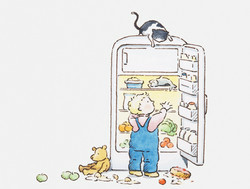Improving refrigeration technology
The energy required for food refrigeration accounts for 8 % of electric power and 2.5 % of carbon dioxide emissions worldwide. The efficiency of food refrigeration has a safety, economic and environmental impact that affects not only consumers, but also the refrigeration industry as a whole. The EU-funded FRISBEE (Food refrigeration innovations for safety, consumer benefit, environmental impact and energy optimization along cold chain in Europe) project strove to improve refrigeration and the cold chain overall, working with a total of 26 partners across 12 EU Member States. Researchers studied the entire cold chain, including packaging, handling, storage, transporting, and retail and household refrigerators. Specifically, the project aimed to enhance food quality, consumer confidence and the competitiveness of European industries, in addition to reducing energy consumption for environmental sustainability. The project team developed new refrigeration models that took account of energy consumption, food quality degradation, high-tech innovations and disruptive technologies. To achieve its aims, FRISBEE compiled new databases of technologies and food product temperatures. It developed quality, energy and environmental assessment tools to develop and evaluate novel and emerging refrigeration technologies for the European food industry. Work also involved assessing the current cold chain and consumer expectations within Europe, as well as conducting a survey on the needs of refrigeration operators. New technologies developed include the design for a domestic magnetic refrigerator and the characterisation of phase change materials (PCMs) used in food packaging. Nanoencapsulation of PCMs was explored, confirming its positive impact on energy reduction. A study was also conducted on the use of nanoparticles in refrigeration at low temperatures, looking at its potential benefits and technical and safety implications. Other advances include a simulation tool to predict ice formation during superchilling, a model for ice crystals, tests on real cold chains and new software to study refrigeration. The results of this research were disseminated through the project website, journal publications and newsletters. With a better overview of European refrigeration needs and the emergence of new technologies, the results will support the entire European food industry, economy and environment as well as consumers worldwide.







